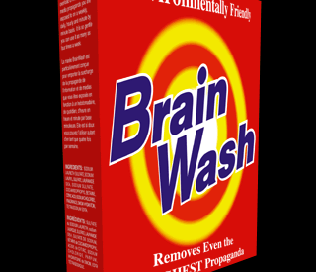Individualism vs. Communitarianism
Understanding the philosophy behind the Socially Responsible Coaching Movement and assess where you are on the spectrum.
Here’s a fun fact about me.
In 2005, I completed a PhD in Philosophy at the European Graduate School. My dissertation was about creating social change. Specifically, I studied how to create better outcomes in childbirth. I was worried about the fact black women in the USA were experiencing maternal mortality at a rate two to three times higher than that of white women. According to the National Center for Health Statistics, The estimated maternal mortality rate for white women in the United States is about 18 per 100,000 live births–but is about 44 per 100,000 live births for black women. That is seriously crazy.
When you are writing a PhD dissertation, you have to sum up all this other academic literature. And this is when I got interested in the American predisposition to libertarian philosophy.
The libertarian place in American thought is long and distinguished. I traced it back to John Locke and the Enlightenment and drew a straight line to my favorite villain, Ayn Rand. Her basic idea was sort of “kill or be killed.” She put a positive, Capitalist, spin on the idea of survival of the fittest and posited that the competent Capitalist will get sick of carrying the burden for everyone else in society and check out. In one of her books (which I won’t name or link here but will be easy to find if you don’t know it), she created the idea of a secret hiding place for rich, white dudes called Galt's Gulch.
All the smart, rich people take care of themselves and their own as the rest of civilization falls into decay, because “fuck ‘em” if they can’t run a business.
Personally, I like the way William Golding portrays it in “The Lord of the Flies” a little better.
Do you remember after Piggy’s glasses were crushed how he was desperately trying to remind the group of the importance of rules when Roger threw the rock that knocked Piggy off the mountainside to his death? I do, because I knew that would be me, futilely holding a Conch shell sliding down the mountainside. Tears streamed down my cheeks as I read.
In a kill or be killed world, the chubby kids with glasses die.
R.I.P Piggy.
This approach to civilization really worked for Rand. She was 100% fine with the idea that someday the fittest of the fit would set up a very limited state dedicated to self-defense and the protection of individual rights — but nothing more.
”Civilization is the progress toward a society of privacy. The savage’s whole existence is public, ruled by the laws of his tribe. Civilization is the process of setting man free from men,” she said.

Some years later, I found myself in a dark place personally. Divorced. Unemployed. Overweight. And with a screaming colicky baby in my arms. And as an individual, I needed help. This was when and how I found life coaching. I pulled myself up from that place, learned to be an emotional adult, freed myself from fat that was a form of self-punishment, found love, and built a thriving business.
I did it all, really, by changing my thoughts about myself and the world. I found a radical acceptance for how things were and used that to fuel the creation of something new and magnificent. And I wanted to tell all the other “Piggy’s” that they too could lose weight, get Lasik, and claim a Conch shell in a way their voice would always be heard.
Slowly, and without realizing it, I had become impervious to the black women dying in labor at a rate 3 times that of white women. I wished, of course, that they too would pull themselves up by their bootstraps and get the prenatal care, good doctors, nice manners, and healthy diets that lead to better outcomes for white women. But that, was their business.
I wish I had reread my dissertation. I wrote about the idea that everyone derives their identify from the broader community. I wrote that community norms (like wearing seatbelts or not smoking on a plane) were at least as important as the rights of individuals. The benefits of universal health care, I argued, outweighed the right for an individual to pick their own doctor.
I wrote about Aristotle and Hegel’s arguement that good must be formulated on the social level and that the community cannot be separated from the individual. Justice for all mothers means justice for black mothers. Somehow in my excitement about the benefits of coaching, I forgot all that.
There are real problems of inequity that have to be solved on a community level, not just on the level of positive mindset for individuals who have access to coaching and new thought literature. We can’t continue to hide behind the idea of “choose your thoughts!” to live a good and decent life.
Choosing your thoughts is great! It saved my life. But the option to choose my thoughts was largely available because of my education, experience, and privilege.
I was brainwashed by my own achievements. I was so proud of what I accomplished as an individual, I thought everyone could do what I did.
I lost sight of my obligation to the community. Which, would potentially be fine if I didn’t have to live on a planet that was dying literally because of this survival of the fittest approach, or if I didn’t have to live in communities where disenfranchised community members were taking to the streets screaming to be heard, much like Piggy with the Conch.
Yes, individual accomplishments are magical, wonderful, and amazing. And also totally irrelevant when we are living in an economically, environmentally, and socially unjust world.
We can’t separate individuals from the community. Galt’s Gulch - unless Elon Musk locates it on Mars - is on the same dying planet as Chicago and Shanghai.
The Life Coaching industry has swung so far into the Libertarian lane, we have lost the ability to prioritize the needs of the community. It’s time for things to come back into balance.
Oxford University Researcher, Kate Raworth talks about it as Doughnut Economics.
She explains this theory to large corporations. “The way we are going,” Raworth argues, “we will lose billions of because human activity is putting too much pressure on Earth’s life-supporting systems.”
She says businesses have an obligation to shrink the doughnut hole that billions of “Piggy’s” are going to fall through.
She is talking about Proctor and Gamble and Unilever, sure, but I’m talking about you… Coaches! Our tiny businesses now have a role to play to shrink the Doughnut Hole!
Raworth created a Corporate To-Do List revealing the vast range of things that companies are ready and willing to do. I have adapted it here for the Wellness/Coaching World. Take a minute to assess which approach you have been taking in your business. No judgement, just an assessment. From there, we can determine, if it’s time for you to commit to doing more.
THE FIVE WAYS COACHES & WELLNESS BUSINESS OWNERS ARE APPROACHING ECONOMIC, ENVIRONMENTAL, & SOCIAL JUSTICE
1. Do nothing
“Yes, the state of the world is unfortunate, but it has nothing to do with my coaching business. I am just here to help people reach their goals, and since everything that I’m doing is legal, I’ll carry on until price or regulation forces me to change. It’s not that I don’t care, but I have a business to build and not time for this extra stuff.”
2. Do what pays
“OK, I get it. People are being canceled. I saw what happened to Rachel Hollis and Danielle LaPorte. I’ll hire a diversity educator (do they have cheap classes on Udemy?) and I’ll put up a black square indicating I support Black Lives Matter when it seems like not doing it might cost me business, but I’m not really that into mixing politics with my coaching business. I am just here to help people.”
3. Do your fair share
“I am commited to building a business that pays contractors fairly. I will not exploit foreign (or Domestic) labor. I will have a clear diversity, equity, and inclusion policy for staff and clients that I make sure is followed. I will check my investments to make sure I am invested in companies committed to cutting greenhouse gas emissions. No one can say I’m not doing my part.”
4. Do Mission Zero
“I have a coaching business that aims to do ZERO harm. I don’t post or email my list with claims that changing your thoughts or being more kind or loving is the solution to systematic problems like racism, sexism, or homophobia. When we have retreats, we hire locally and support the economy. We don’t fly in chefs or exploit indigenous practices for monetary gain. We check our carbon footprint and our colonist ways. We have a well-thought through environmental policy. We check our pricing is economically fair. We are on mission Zero and refuse to contribute to the problems in the world with the work we teach, the business we run, or the ways we invest what we earn.”
5. Be Generative
“The very reason my business exists is to heal economic, environmental, and/or social injustice. The way we do business heals racial inequalities, supports the empowerment of LGBT+ people, pays living wages, and builds community – we exist to create more economic, environmental, and social justice so our coaching clients succeed in a world that will continue to exist and thrive. Our business makes good things happen for society and for the living world.”
Be honest. Which of these 5 statements sounds most like your business? It’s okay to embrace where you are. In my next post for paid members, I’m going to walk you through a material assessment of the issues that can affect your business and the areas where you can have the greatest impact. This is called a materiality assessment and it’s time for your business to have one! It’s a great time to become a paid member so we can get going together on making your coaching business - which is probably already incredible individually responsible, into one that is equally socially responsible.










Dear Angela,
Thank you for this.
I wonder how your thoughts evolved on paying taxes. I remember years ago you shared in a forum, how you felt conflicted about being a democrat (or leaning democrat) while also your business spending time and money on finding ways to pay less in taxes.
Avoiding taxes is a global sport by the way… and of course the biggest companies pay least.
But taxes are important, for leveling the field. People don’t want charity, they want better schools and healthcare, access to good services.